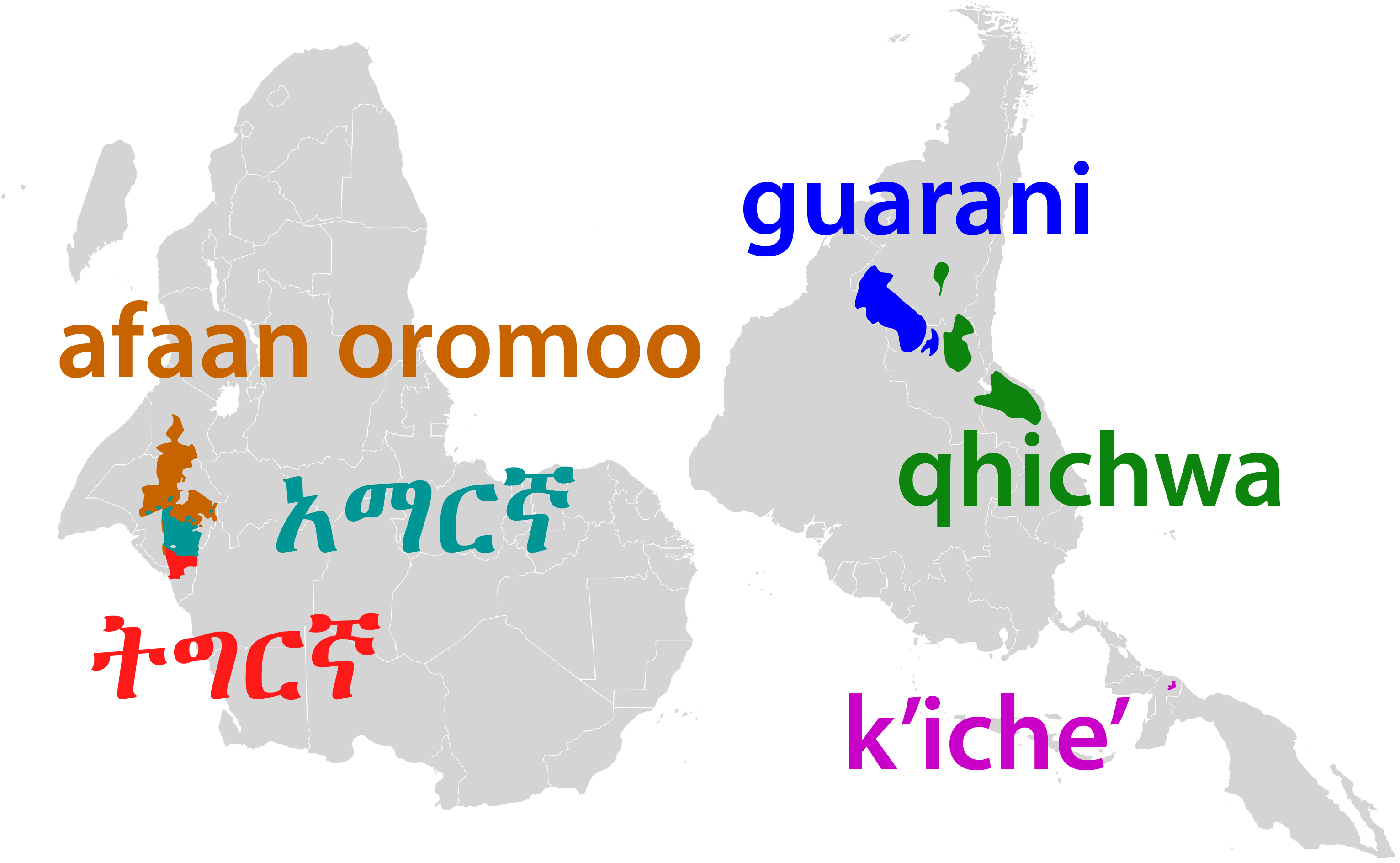
of the global south
Processing languages of the Global South
Linguistic Digital Divide
The Linguistic Digital Divide (LDD) separates a small number of digitally privileged languages (and the communities that speak, read, and write them) from other languages (and the communities that speak, read, and write them). The privileged languages include not only some spoken by very many people, such as English, Mandarin Chinese, and Spanish, but also some spoken by communities of fewer than 10 million people, such as Finnish, Danish, and Catalan. The disadvantaged languages inlude many that are spoken by relatively few people but also those spoken by more than 50 million people, such as Telugu and Burmese.
The LDD is represented mainly by the relative lack of documents and computational resources for the disadvantaged languages. It has several consequences:
- it denies the advances of the Digital Revolution to the majority of people
- it inhibits the participation of the majority in solving urgent national and international problems
- it exaggerates class divisions within linguistic communities (because the well-off are often capable of using one of the privileged languages)
- it diminishes the role of many languages, most of them already marginalized through a history of imperialism
Some references
Gasser, M. (2018). La democratización del conocimiento y el desarrollo de las lenguas minorizadas en la Época Digital. Tercer Seminario Internacional sobre Traducción, Terminología y Lenguas Minorizadas, Asunción, Paraguay, July 19-21, 2018. ftp://ftp.cs.indiana.edu/pub/gasser/conocimiento.pdf
Paolillo, J. (2005). Language diversity on the Internet: examining linguistic bias. In UNESCO Institute for Statistics (Ed.), Measuring linguistic diversity on the Internet. Montreal, Canada: UIS. http://uis.unesco.org/sites/default/files/documents/measuring-linguistic-diversity-on-the-internet-ict-2005-en_0.pdf